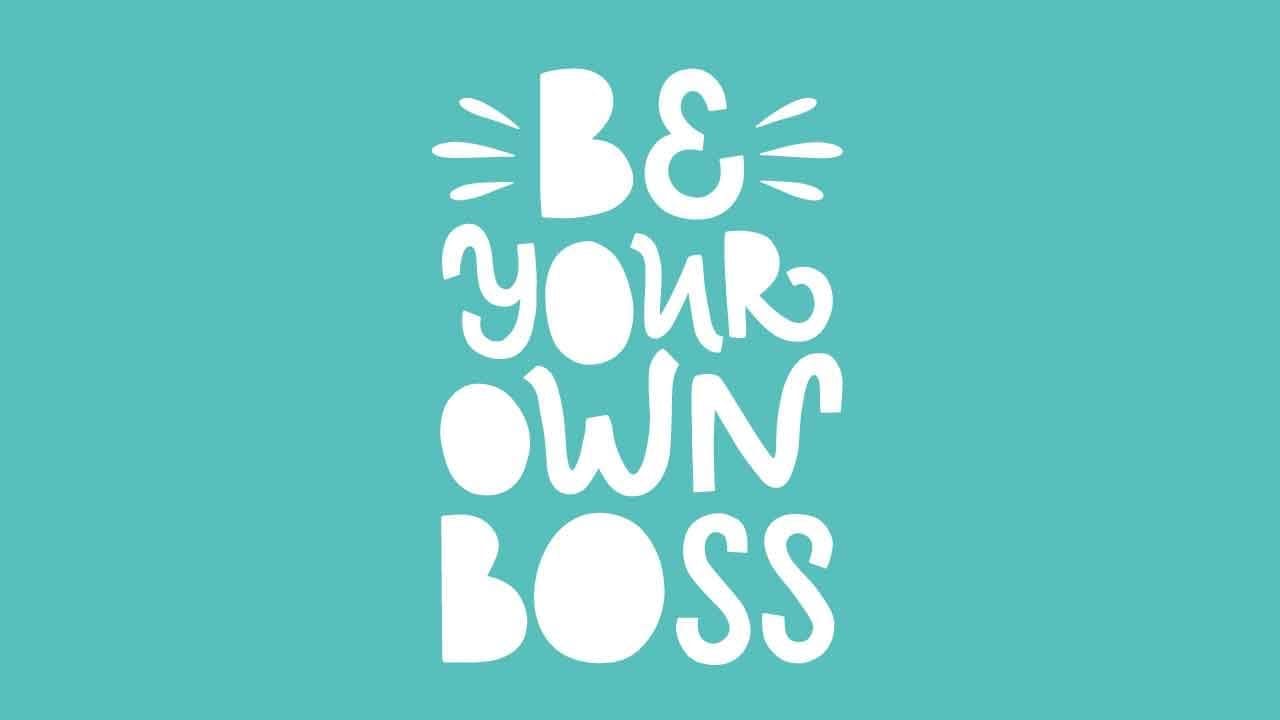What is an Independent Contractor? 6 Things You Need to Know



What is an independent contractor? This is a question that many people are asking these days. The answer can be a little bit confusing, because the term can mean different things to different people. In general, though, an independent contractor is someone who contracts with another business to provide and perform services.
They are not employed by that business, and they are usually self-employed. There are some important things to know about working with or becoming independent contractors, so keep reading for 6 key points!
An independent contractor is a self-employed individual who contracts with another business to provide services. The relationship between an independent contractor and the business he or she contracts with is often called a "contractor relationship."
Independent contractors are small business owners. When two businesses enter into a contractor agreement, they are defining a specific working relationship.
This independent contractor agreement spells out the terms of the contractor arrangement, including the roles and responsibilities of each party. It also establishes the contractor's fee and the timeline for the project.
By clearly defining the relationship from the outset, a contractor agreement helps to avoid misunderstandings and potential legal problems down the road. In addition, this document can serve as a valuable reference point if disagreements arise during the course of the project. For these reasons, a contractor agreement is an essential tool for any business relationship.
An independent contractor is someone who performs work for another person or company, but is not an employee of that person or company. Independent contractors are typically self-employed and control how they do their work, as well as when and where they do it. Usually, they work for themselves, setting their own hours and rates. They may also hire others to help them with their work.
Contractor workers can be found in many different fields, from writing and software design to acting and music. The rise of the gig economy has led to an increase in the number of self contractors, as more and more people are choosing to freelance instead of working traditional jobs.
Independent contractor examples can be found in Bestreferraldriver.com. Amazon Flex drivers, rideshare drivers , and delivery contractors are some of the 1099 contractor examples that can be found on Bestreferraldriver.com.
Bestreferraldriver.com is a site that lists contractor jobs opportunities for those who are looking for contractor works. The site includes a list of companies of the gig economy that hire workers for various positions.
There is also information on how to become an independent contractor and what you need to know about taxes and other requirements.
The IRS has a three-part test to determine whether someone is an independent contractor or an employee. The first part of the test looks at whether the worker has the right to control or direct how the work is done. If the answer is no, then the worker is likely an employee.
The second part of the test looks at whether the worker supplies his or her own tools and equipment. If the answer is yes, then the worker is likely an independent contractor. The third and final part of the test looks at whether the worker is paid by the hour, week, or month, or if he or she is paid based on the completion of a project. If the worker is paid by the hour, week, or month, then he or she is likely an employee. However, if the worker is paid based on the completion of a project, then he or she is likely an independent contractor.
To make sure you're correctly classified, the IRS has a 20-point checklist that they use to determine whether someone is an employee or an independent contractor.
Some of the key factors they look at include whether you're free to work for other businesses, how much control the business has over your work, and whether you're paid by the hour or by the job. If you meet most of the criteria on the list, then it's likely that you'll be classified as an independent contractor.
However, if you don't meet many of the criteria, then the IRS may conclude that you're actually an employee. So if you're not sure about your Independent contractor status, it's always best to check with the IRS before filing your taxes.
If you have a business, working with an independent contractor can be a great way to get the services you need without having to employ someone. Just make sure that you understand the key points before you get started!
There are many benefits of working as a contract worker, and we will break them down below. However, there are also some things you need to know before entering into this type of Independent contractor relationship. In this blog post, we will discuss 5 things you need to know about 1099 contractors!
Independent contractors are not considered “employees” under the Fair Labor Standards Act and therefore are not entitled to the same rights and benefits as employees.
For example, they are not entitled to vacation pay or health insurance. They also usually don’t get any kind of job security, since their contracts can be terminated at any time.
Additionally, workers' compensation insurance and benefits are not provided to independent contractors. Only workers are eligible for benefits under the workers' compensation system. The distinction is significant in the event that you have an injury while doing labor for an employer. It is possible that the insurance company will not pay out on your claim since you are not an employee of the company.
This means that they are responsible for their own taxes and social security contributions. They may also be responsible for their own business expenses, like office space or supplies.
This means that they only get paid for the work that they actually do. They don’t receive a regular paycheck or pay stub like an employee would.
There is no minimum wage, on the other hand, there is no limit on how much money they can earn as self-employed. Finally, they can enjoy the sense of pride and accomplishment that comes with building a successful business.
This means that they can be fired at any time and they don’t have any job security. They also don’t have the same rights when it comes to things like overtime pay or vacation time.
As an independent contractor, it is your responsibility to keep track of your earnings and report them accurately come tax time.
This means that they need to file their own taxes and pay their own income taxes. They may also be responsible for paying self-employment tax, Social Security tax and Medicare taxes.
Use Schedule C (on Form 1040) to calculate and file a net income or loss for your business.
You should make sure to keep records of all payments received from clients, as well as any expenses you incurred in the course of your work. Your clients are also legally obligated to issue you a 1099 form if they paid you more than $600 for your services during the year.
This form will detail your earnings for the year and must be included with your tax return. Failure to comply with these requirements can result in hefty penalties, so it is important to be diligent in tracking your income and expenses.
This means that they need to pay for their own office space, supplies, and marketing. They may also need to pay for their own insurance.
While being a self contractor offers many benefits, such as flexibility and independence, there are also some downsides, such as a lack of job security and benefits.
On the plus side, you have the freedom to choose your own projects and set your own schedule. You also have the opportunity to work from home, which can save on expensive office space rental costs.
One benefit of working as an independent contractor is that many company costs may be written off against your yearly taxes. You may deduct company costs from your income to reduce your tax liability. Your list of allowable costs might include:
For those who are willing to take on the risk, being a self contractor can also be a rewarding experience.
While there are many benefits to being an independent worker, there are also some potential drawbacks to consider.
On the downside, you may have difficulty finding work during slow periods, and you will not have any employee benefits such as health insurance or paid vacation days.
You will also be responsible for paying your own taxes.
One of the biggest challenges is the lack of job security. Without a contract or full-time position, contractors may find themselves out of work with little notice. Take the example of Uber drivers who can be deactivated from the platform.
They may also have difficulty qualifying for loans and other financial products, as they may not have a steady source of income. Additionally, independent contractors may have to invest more time and money into marketing and advertising their services.
Whether or not to become an independent contractor should be carefully considered before taking the plunge. It is a decision that each person must make for themselves, based on their own needs and preferences.
👀 Related Article: 20 Best Independent Courier Jobs
Becoming an independent contractor has a few requirements. Legally, you must be 18 years or older and not be under any type of guardianship.
You will also need to have a Social Security number or an Individual Taxpayer Identification Number so that you can file your taxes properly. In order to work with a company as an independent contractor, they will likely require that you fill out a W-9 form first.
Some companies may also require that you sign a contract saying that you will abide by their rules and regulations. Finally, you will need to be able to provide your own supplies and equipment in order to do the job properly. Although the requirements may seem daunting at first, becoming a contractor can be a great way to gain control over your work schedule and earn extra income.
Many people who work as independent contractors do so without ever obtaining a business license. However, depending on the location and industry, a business license may be required. Even within the United States, the requirements for a business license can vary depending on the city, state, and type of work.
In general, businesses that require a license for independent contractors tend to have very strict licensing requirements.
While a business license may not be required in all cases, it is always best to check with local authorities to be sure.
Now that you know all there is to know about an independent contractor, it’s time to get started! Review the steps above and make sure you have everything in order. Then, take the plunge and launch your own business. With a little hard work and some luck, you could be on your way to a successful career as an independent contractor. Do you have any questions about becoming an IC? Send us an email and we’ll do our best to help out.
We provide the best resources and information for the major ridesharing, bike sharing, kids sharing and delivery companies. Best UberEats Invite Code, Lyft driver Promo code and Postmates Referral code. Sign up at 100% working and they will give you the best sign up bonus at any given time.